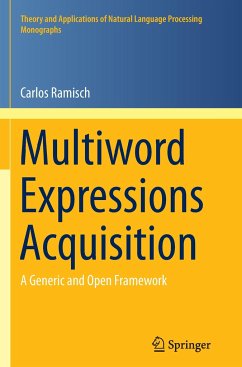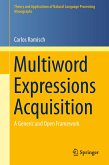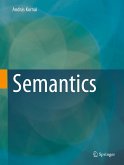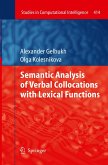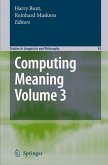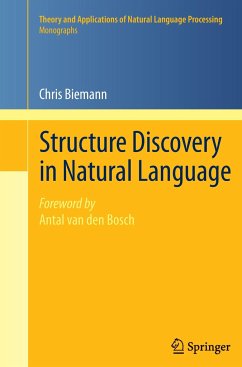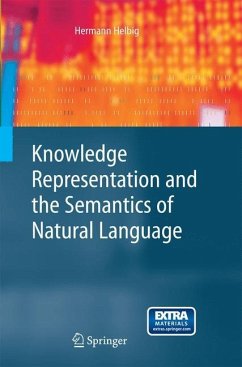This book is an excellent introduction to multiword expressions. It provides a unique, comprehensive and up-to-date overview of this exciting topic in computational linguistics. The first part describes the diversity and richness of multiword expressions, including many examples in several languages. These constructions are not only complex and arbitrary, but also much more frequent than one would guess, making them a real nightmare for natural language processing applications.
The second part introduces a new generic framework for automatic acquisition of multiword expressions from texts. Furthermore, it describes the accompanying free software tool, the mwetoolkit, which comes in handy when looking for expressions in texts (regardless of the language). Evaluation is greatly emphasized, underlining the fact that results depend on parameters like corpus size, language, MWE type, etc. The last part contains solid experimental results and evaluates the mwetoolkit, demonstrating its usefulness for computer-assisted lexicography and machine translation.
This is the first book to cover the whole pipeline of multiword expression acquisition in a single volume. It is addresses the needs of students and researchers in computational and theoretical linguistics, cognitive sciences, artificial intelligence and computer science. Its good balance between computational and linguistic views make it the perfect starting point for anyone interested in multiword expressions, language and text processing in general.
The second part introduces a new generic framework for automatic acquisition of multiword expressions from texts. Furthermore, it describes the accompanying free software tool, the mwetoolkit, which comes in handy when looking for expressions in texts (regardless of the language). Evaluation is greatly emphasized, underlining the fact that results depend on parameters like corpus size, language, MWE type, etc. The last part contains solid experimental results and evaluates the mwetoolkit, demonstrating its usefulness for computer-assisted lexicography and machine translation.
This is the first book to cover the whole pipeline of multiword expression acquisition in a single volume. It is addresses the needs of students and researchers in computational and theoretical linguistics, cognitive sciences, artificial intelligence and computer science. Its good balance between computational and linguistic views make it the perfect starting point for anyone interested in multiword expressions, language and text processing in general.
"The motivating idea behind this work is to explore and compare approaches to MWE, involving various tools as well as human resources. ... Much information is given to enable other researchers to investigate MWEs. The book contains a vast amount of information. ... An extensive bibliography follows each chapter. There are helpful appendices, including a list of standard part of speech tags." (Alice Davison, Computing Reviews, September, 2015)

